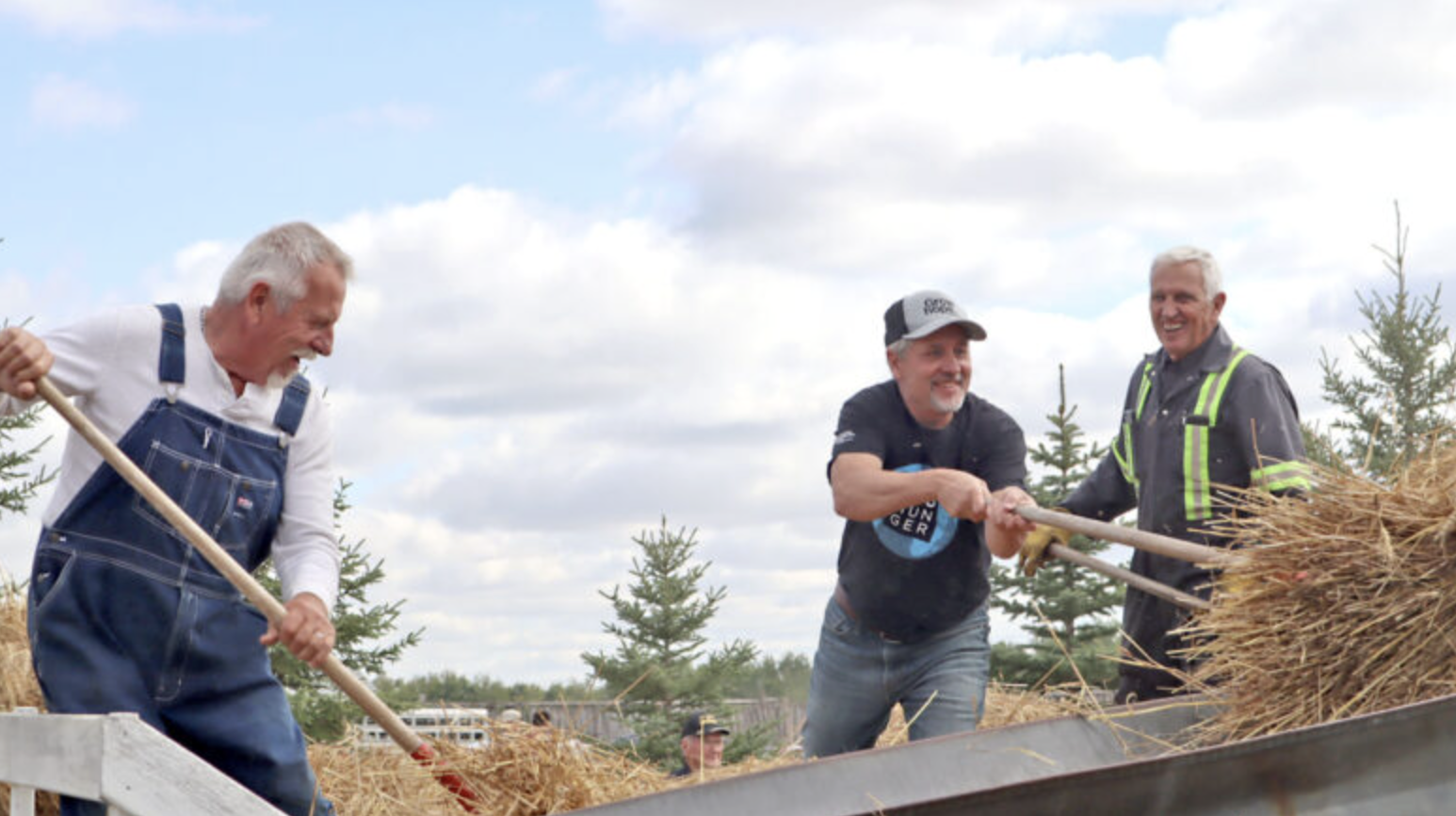SASKATOON, Sask. (CCN) — A Grow Hope program in Saskatchewan seemed like a natural idea after observing the early, budding success of the initiative in neighbouring Manitoba in 2015, which was started by the Mennonite Central Committee (MCC) Manitoba in partnership with the Canadian Foodgrains Bank and Artel Farms.
“I think a large part of the identity of our province is taking pride in providing food for the world,” said Rick Guenther, who served MCC Saskatchewan as communications and donor relations director for nearly a decade before retiring this past April. “Most people in Saskatchewan adhere to a Christian tradition where it’s very clear Jesus asks us to give food to those who have no food and water to those who have nothing to drink.”
In 2017, Guenther came together with Myron Rogal, the justice and peace office coordinator for the Saskatoon diocese, along with Rick and Jacquie Block, the Saskatchewan representatives of the Canadian Foodgrains Bank.
Christians coming together to address hunger
“To come together and do this, especially in the context of an actual project that’s on the ground, requires a lot of coordination and it also requires a sense of people choosing to say, ‘I’m in line with this larger identity of being a Christian response to hunger,’ “ said Rick Block.
Emulating the successful Manitoba template, the collaborators connected with the farming community. Farmers generously agreed to cultivate and donate land to nurture a crop for Grow Hope Saskatchewan. After the harvest, the farmers sell the crop and donate the proceeds to the Canadian Foodgrains Bank.
Crop proceeds aid people experiencing a crisis. The bounty could be matched up to 4:1 through the Canadian Foodgrains Bank’s partnership with Global Affairs Canada, the country’s international development and humanitarian assistance department.
Rural and urban dwellers are empowered to help the effort to combat hunger around the world by sponsoring a crop. Donations help provide the seed, fertilizer, fuel and other components needed to assist the growing process.
Approximately 160 acres of farmland were devoted to Grow Hope Saskatchewan at the outset. Now, there are 500 acres earmarked for this food security endeavour. Development and Peace – Caritas Canada, Canadian Baptist Ministries, Synod of Saskatchewan of the Presbyterian Church in Canada, Alongside Hope and the Canadian Lutheran World Relief have also joined as partner agencies over the past eight years.
Impressive outcomes
This ecumenical collaboration has resulted in impressive outcomes, said Rogal.
“It’s quite remarkable to think that in a way that a handful of farmers from Saskatchewan and some support from their denominational agencies have helped feed a significant number of people around the globe who regularly go without food,” said Rogal.
“Where we’re walking in a year right now as pilgrims of hope is to show that if a small group of people can come together to have that impact internationally, in some ways it’s simpler to do that at a local level. It brings a sense of hope in terms of being with our brothers and sisters in Christ who may be suffering and seeing that we are not just a bystander but an active participant in that mission.”
Fostering relationships and discourse is also viewed as an important impetus for Grow Hope Saskatchewan in Guenther, Block and Rogal’s estimation. They took note of how urban and rural Saskatchewan residents voted differently in the 2024 provincial election.
“(It) highlighted the fact that as a province, we’re too strongly divided along a lot of various issues between urban and rural,” said Block. “That includes aspects in terms of agriculture, food security. We really feel that Grow Hope Saskatchewan along with generating resources and awareness about global hunger, it actually can be a vehicle for greater urban and rural dialogue and understanding in non-confrontational ways.”
Regarding addressing worldwide hunger, Guenther accentuated that “we know that there is increasing level of hunger in Canada, and we know that it is tragic that anyone should go hungry, but we have to keep the door and conversation open to include the global context.”
Each month when the partners come together to discuss the ongoing logistics of Grow Hope Saskatchewan, time is devoted to prayer and meditation — “spiritual food,” in Block’s words. All involved say this forum to discuss and mediate upon faith in Jesus Christ is a cherished aspect of this project.
Guenther, Block and Rogal also emphasized the desire for continued measured growth of this program. In three to five years, they would like to see several more agencies become partners. Rogal added that he would like to see “see the business community get a little bit more involved as well.”
To learn more, visit https://www.growhopesk.ca/.




